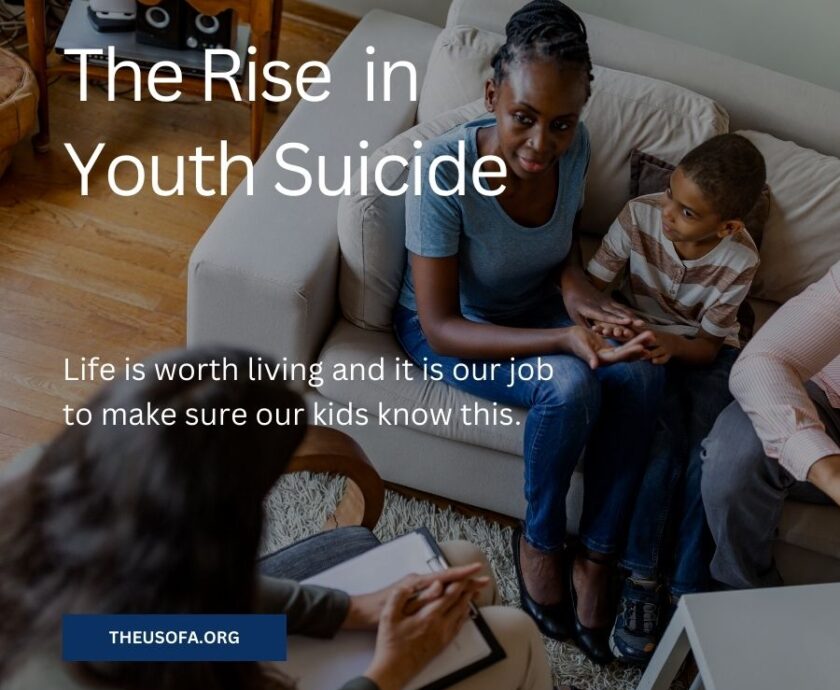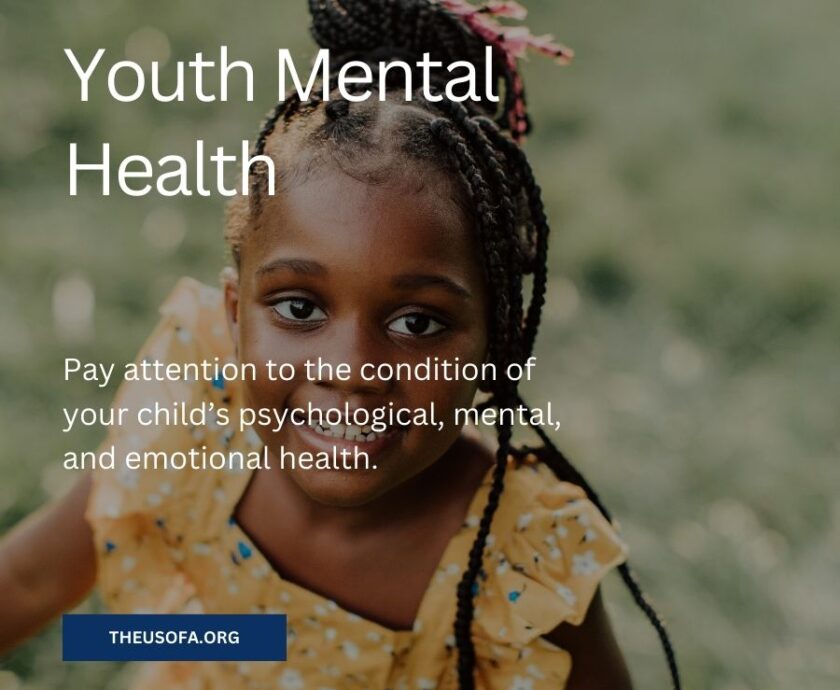The Importance of Youth Mental Health
Youth mental health refers to the psychological, emotional, and social well-being of children and adolescents. It encompasses a range of conditions and disorders that can impact a young person’s thoughts, feelings, and behaviors, ultimately affecting their overall development and quality of life.
The prevalence of mental health issues among youth is staggering. According to recent studies, approximately one in five children and adolescents experience a mental health disorder, with anxiety, depression, and behavioral disorders being among the most common. These numbers highlight the urgent need for increased awareness, early intervention, and accessible support services.
Good mental health during childhood and adolescence is crucial for several reasons. First and foremost, it plays a vital role in a young person’s cognitive, emotional, and social development. Mental health challenges can impede a child’s ability to learn, form healthy relationships, and develop essential life skills. Unaddressed mental health issues can also lead to academic difficulties, social isolation, and an increased risk of substance abuse and self-harm.
Furthermore, mental health problems in youth can have long-lasting consequences that extend into adulthood. Individuals who experience mental health challenges during their formative years are more likely to struggle with chronic mental health conditions, employment difficulties, and strained personal relationships later in life.
Promoting positive mental health in youth is not only about addressing existing issues but also about fostering resilience, self-esteem, and healthy coping mechanisms. By prioritizing mental well-being from an early age, we can equip young people with the tools and support they need to navigate the challenges of growing up and reach their full potential.
Common Mental Health Challenges in Youth
Anxiety disorders, depression, Attention Deficit Hyperactivity Disorder (ADHD), eating disorders, self-harm, and suicidal thoughts are among the most prevalent mental health challenges faced by young people today.
Anxiety Disorders
Characterized by excessive worry, fear, and avoidance of certain situations, anxiety disorders can manifest in various forms, including generalized anxiety disorder, social anxiety, and specific phobias. Symptoms may include restlessness, fatigue, difficulty concentrating, irritability, and physical symptoms like muscle tension or rapid heartbeat.
Depression
Marked by persistent sadness, loss of interest in activities, changes in appetite and sleep patterns, feelings of worthlessness or guilt, and recurrent thoughts of death or suicide, depression can significantly impact a young person’s overall well-being and functioning.
ADHD
Individuals with ADHD often experience inattention, hyperactivity, and impulsivity, making it challenging to focus, follow instructions, and regulate their behavior. ADHD can lead to academic struggles, social difficulties, and low self-esteem if left unaddressed.
Eating Disorders
Conditions like anorexia nervosa, bulimia nervosa, and binge eating disorder involve distorted body image and unhealthy eating behaviors. Warning signs may include preoccupation with weight and food, extreme dietary restrictions, binge eating, purging behaviors, and excessive exercise.
Self-Harm
Self-injurious behaviors, such as cutting, burning, or hitting oneself, are often a coping mechanism for intense emotional pain or distress. Self-harm can be a cry for help and a sign of underlying mental health issues that require professional intervention.
Suicidal Thoughts and Behavior
Suicidal ideation and attempts are serious mental health emergencies that should never be ignored. Warning signs may include talking about wanting to die, feeling hopeless or trapped, withdrawing from friends and family, giving away possessions, and engaging in reckless or self-destructive behavior.
It’s crucial to recognize these mental health challenges early and provide appropriate support and treatment. Early intervention can help prevent long-term consequences and promote overall well-being for young people.
Risk Factors for Poor Mental Health
Numerous factors can contribute to the development of mental health issues in youth. Genetic predisposition plays a role, as certain conditions like depression, anxiety, and neurodevelopmental disorders have a hereditary component. Children with a family history of mental illness may be more susceptible.
Trauma, whether emotional, physical, or sexual abuse, can have a profoundly negative impact on a child’s mental well-being. Exposure to violence, neglect, or other adverse childhood experiences can lead to long-lasting psychological effects and increase the risk of mental health problems.
Bullying, both in-person and online, is a significant stressor that can lead to anxiety, depression, low self-esteem, and even suicidal thoughts. The relentless nature of cyberbullying, in particular, can make it difficult for youth to find respite.
Academic pressure, especially in highly competitive environments, can contribute to stress, anxiety, and burnout. The constant pressure to excel, coupled with the fear of failure, can take a toll on a young person’s mental health.
Family issues, such as parental conflict, divorce, or substance abuse, can create an unstable and potentially traumatic environment for children. Lack of support, communication, and healthy coping mechanisms within the family unit can exacerbate mental health challenges.
Social media, while offering opportunities for connection, can also be a breeding ground for cyberbullying, social comparison, and unrealistic expectations. Excessive use and exposure to negative content can contribute to low self-esteem, anxiety, and depression in youth.
Promoting Positive Mental Health
Fostering positive mental health in youth is crucial for their overall well-being and development. It involves equipping young individuals with coping strategies, promoting self-care practices, building resilience, and nurturing positive relationships.
Coping Strategies
Teaching youth effective coping mechanisms is essential for managing stress, anxiety, and other mental health challenges. These strategies may include mindfulness techniques, such as deep breathing exercises, meditation, or yoga, which can help regulate emotions and promote relaxation. Cognitive-behavioral strategies, like reframing negative thoughts and practicing positive self-talk, can also be beneficial.
Self-Care
Encouraging youth to prioritize self-care is vital for maintaining good mental health. This includes promoting healthy habits like regular exercise, balanced nutrition, adequate sleep, and engaging in enjoyable activities or hobbies. Creating a supportive environment that values self-care can help young individuals develop a positive relationship with themselves and their well-being.
Resilience Building
Developing resilience is crucial for youth to navigate life’s challenges and bounce back from adversity. Resilience can be fostered through activities that build problem-solving skills, emotional regulation, and a growth mindset. Providing opportunities for youth to face and overcome challenges in a supportive environment can help them develop resilience and confidence.
Positive Relationships
Strong, supportive relationships play a vital role in promoting positive mental health. Encouraging youth to build and maintain healthy connections with family, friends, and mentors can provide a sense of belonging, emotional support, and a safe space to share their experiences. Positive relationships can also serve as a protective factor against mental health challenges.
By incorporating these elements into their lives, youth can develop the skills and resources necessary to maintain positive mental health, cope with challenges, and thrive in their personal and academic endeavors.
Role of Family and Community
Families and communities play a crucial role in supporting the mental health of young people. Open and honest communication within the home environment is essential for children to feel comfortable expressing their thoughts, feelings, and concerns. Parents and caregivers should strive to create a safe, non-judgmental space where children can openly discuss their mental well-being without fear of stigma or shame.
Families can also take proactive steps to promote positive mental health by encouraging healthy habits, such as regular exercise, balanced nutrition, and adequate sleep. Engaging in family activities, spending quality time together, and fostering a sense of belonging and connection can contribute significantly to a child’s overall well-being.
Moreover, communities can contribute to youth mental health by raising awareness, reducing stigma, and providing access to resources and support services. Local organizations, faith-based groups, and community centers can offer educational programs, support groups, and mental health screenings to identify and address potential issues early on.
Collaboration between families, schools, healthcare providers, and community organizations is essential for creating a comprehensive support system for young people. By working together, these entities can ensure that children and adolescents have access to the resources and services they need to maintain good mental health and receive appropriate interventions when necessary.
School-Based Mental Health Initiatives
Schools play a crucial role in promoting youth mental health and well-being. Effective school-based initiatives can help identify and address mental health concerns early, create a supportive environment, and equip students with coping strategies and resilience.
Counseling Services
Providing accessible and confidential counseling services within the school setting is essential. Qualified mental health professionals, such as school counselors, psychologists, and social workers, can offer individual and group counseling sessions to students struggling with mental health issues. These services can help students develop coping mechanisms, manage stress and anxiety, and receive the support they need.
Anti-Bullying Programs
Bullying can have severe consequences on a child’s mental health, self-esteem, and overall well-being. Implementing comprehensive anti-bullying programs that involve students, teachers, and parents is crucial. These programs should focus on raising awareness, promoting empathy and respect, and providing clear reporting and intervention mechanisms to address bullying incidents effectively.
Mental Health Education
Incorporating mental health education into the curriculum can help destigmatize mental illness and equip students with the knowledge and skills to recognize and address mental health concerns. This education should cover topics such as stress management, emotional regulation, self-care, and healthy coping strategies. Interactive workshops, guest speakers, and age-appropriate resources can make this education engaging and relatable.
Teacher Training
Teachers play a pivotal role in identifying and supporting students with mental health needs. Providing comprehensive training to educators on mental health awareness, recognizing warning signs, and appropriate intervention strategies is crucial. This training should also cover creating a supportive and inclusive classroom environment that promotes mental well-being.
Mental Health Services and Resources
Mental health services and resources play a crucial role in supporting youth who are struggling with mental health challenges. These resources can provide invaluable support, guidance, and treatment options to help young people navigate their mental health journey.
Therapy Options
Therapy is a highly effective approach for addressing a wide range of mental health concerns in youth. Different types of therapy, such as cognitive-behavioral therapy (CBT), dialectical behavior therapy (DBT), and family therapy, can help young people develop coping strategies, improve communication skills, and address underlying issues contributing to their mental health challenges.
Online Tools and Resources
In today’s digital age, online tools and resources have become increasingly accessible and valuable for youth seeking mental health support. These can include mental health apps, online counseling platforms, educational websites, and virtual support groups. These resources can provide a convenient and anonymous way for young people to access information, connect with others, and receive guidance.
Crisis Hotlines
Crisis hotlines are essential resources for youth experiencing mental health emergencies or suicidal thoughts. These hotlines are staffed by trained professionals who can provide immediate support, crisis intervention, and referrals to appropriate services. Crisis hotlines can be a lifeline for young people in distress, offering a safe and confidential space to seek help.
Community Organizations
Many local and national organizations offer mental health services and support specifically tailored for youth. These organizations may provide counseling, support groups, educational programs, and advocacy efforts. Community organizations can be valuable resources for young people and their families, offering a sense of community, peer support, and access to specialized services.
Accessing mental health services and resources can be a crucial step in promoting positive mental health and well-being for youth. By utilizing these resources, young people can receive the support, guidance, and treatment they need to navigate their mental health challenges and thrive.
Ultimately, a call to action is needed from all stakeholders – policymakers, educators, healthcare professionals, parents, and society as a whole. We must prioritize mental health education, advocate for increased funding and resources, and work collaboratively to create a culture of compassion and understanding for our youth. Together, we can break down barriers and ensure that every young person has the support they need to thrive.





